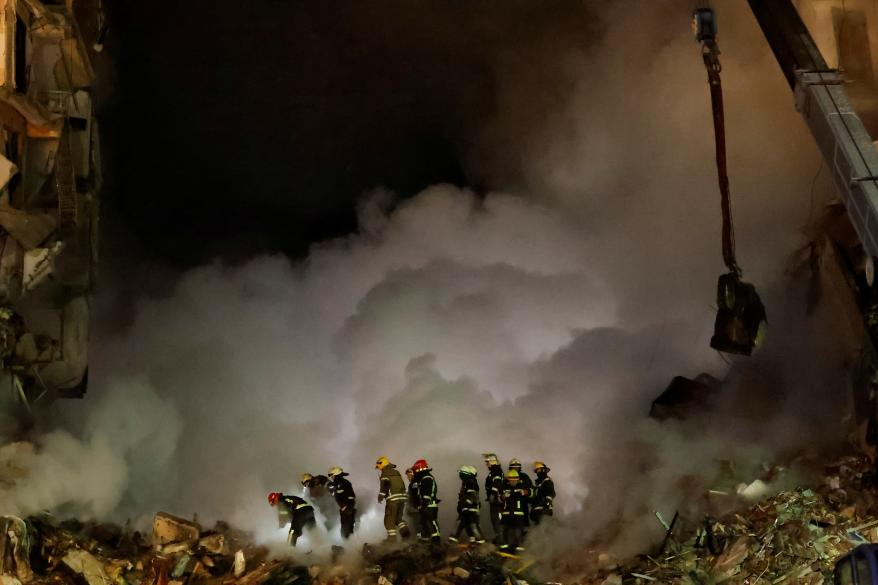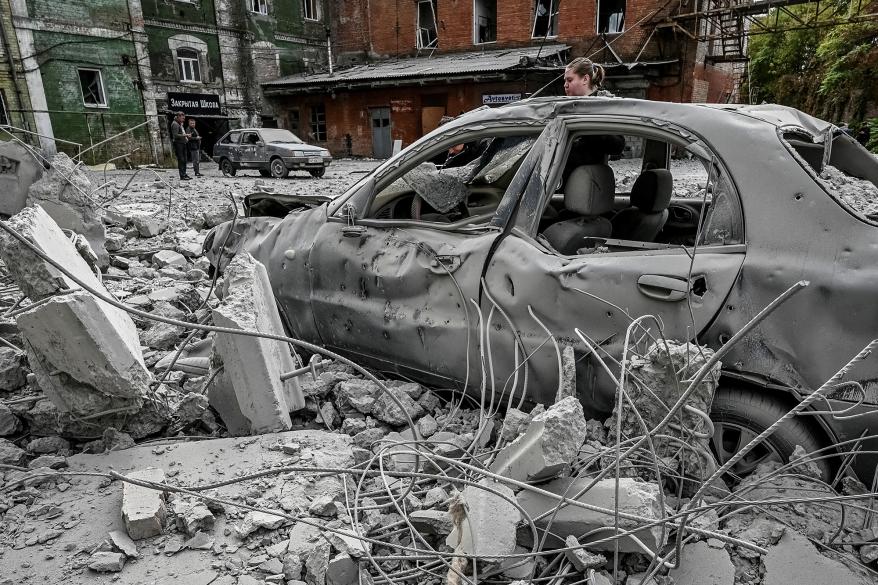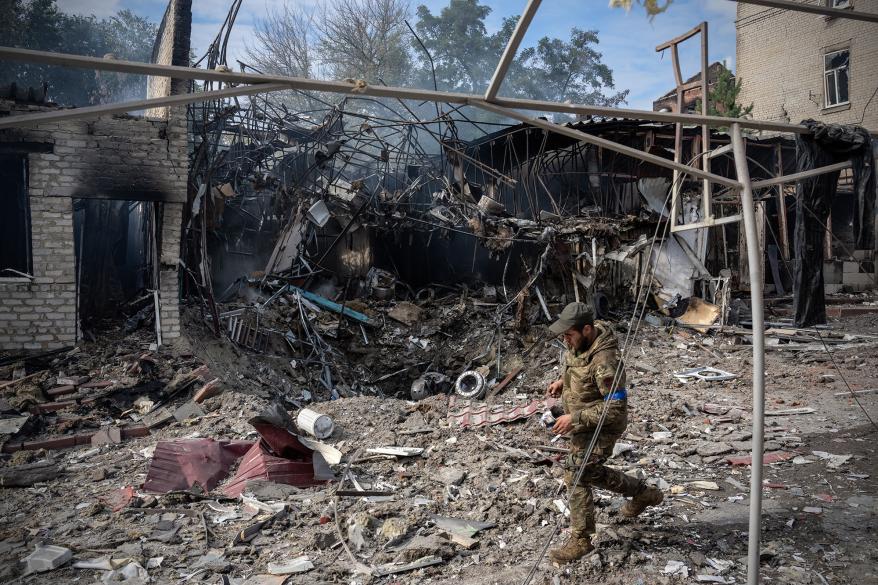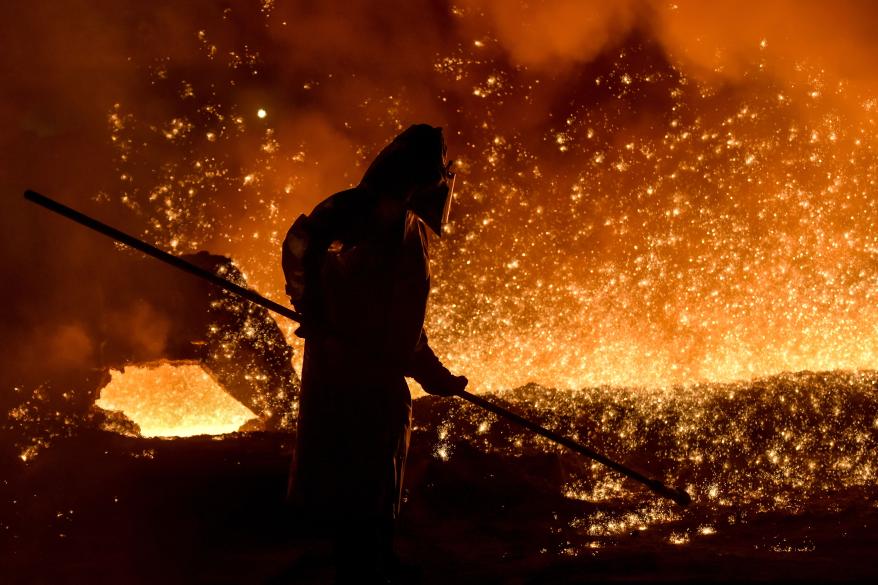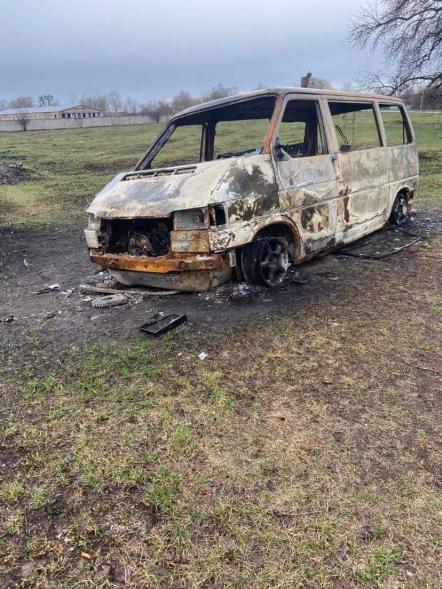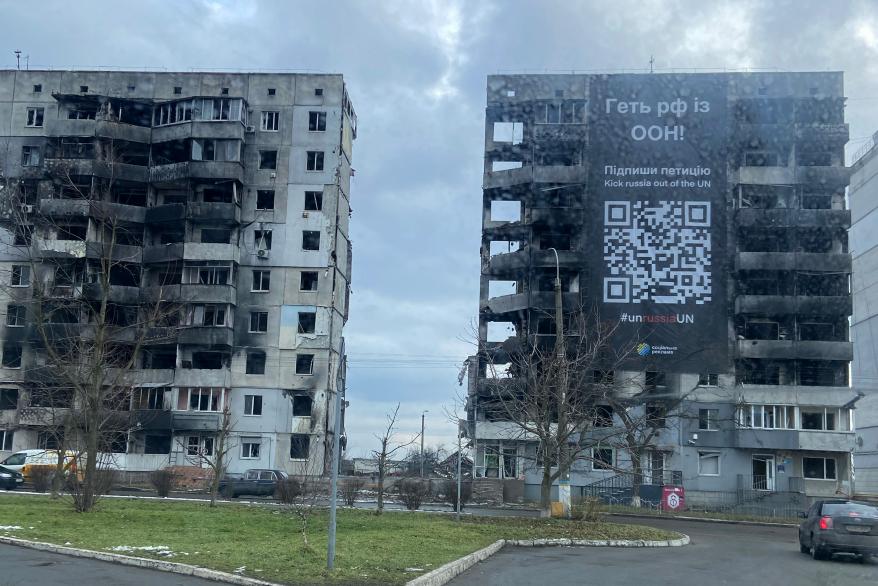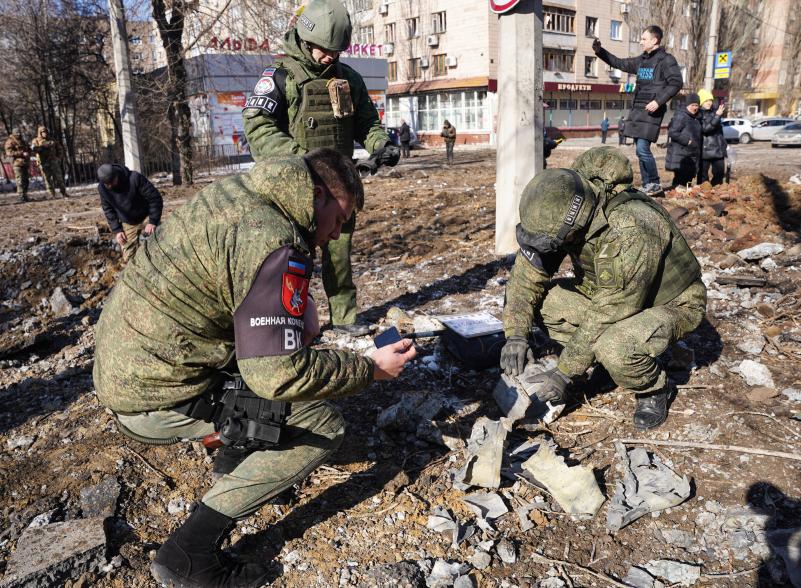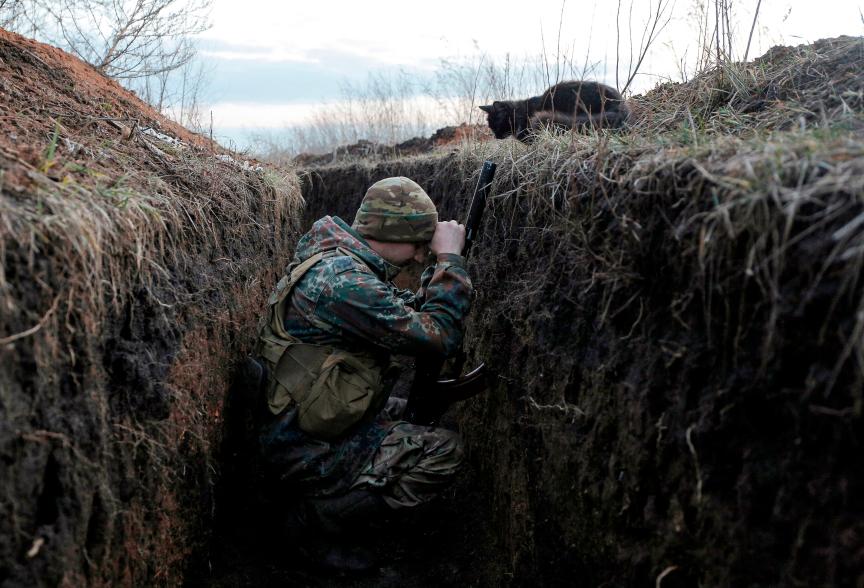Ukraine refugees in NYC describe harrowing escape from war — and how they want to go home
Volodymyr Bieliaiev never wanted to leave his beloved Ukraine — even after Russian forces charged into his homeland on Feb. 24, 2022.
But when a rocket demolished his neighbor’s house — and a family friend begged him to save his wife and daughter while he went to the front lines — the 65-year-old doctor knew it was time to go.
It was just 20 days into what has become the biggest European invasion since the end of World War II.
Bieliaiev, who was only allowed to leave the country because of his age, packed up what he could of his life and fled his home in Chernihiv, in northern Ukraine.
Kyiv announced martial law and issued a travel ban for physically-fit Ukrainian men aged 18-60 after Russia invaded.
He dropped his friend’s family over the border and moved with his wife to New York, where his daughter, Kate, lives with her 2-month-old son, Lucas.
“I left a lot of friends and family in Ukraine. My home is there. It’s upsetting. When the war began, I went to the army to get weapons so I could fight … I wanted to fight for Ukraine. Chernihiv is right before Kyiv — the Russian aggressors were right there. If it wasn’t for Chernihiv, Russia would have gotten straight to Kyiv,” Bieliaiev, who now lives on Roosevelt Island, told The Post Tuesday through a translator.
“It was very hard to leave. My wife and I were both doctors in Ukraine. We had a normal life and we lived how we wanted to. It wasn’t a hard life but now it’s totally different.”
Bieliaiev’s harrowing story of flight and upheaval is typical of the more than 8 million Ukrainians who have fled Russian President Vladimir Putin’s brutal war, which he launched under the guise of trying to “de-Nazify” his democratic neighbor.
Zachary Dmyterko, a spokesperson for RefugeeOne, a Chicago not-for-profit that has resettled more than 2,800 Ukrainian refugees, told The Post that more than half tell him they want to go back home.
But as the bloody invasion’s one-year anniversary has arrived, it’s not clear when the combat will end — or when displaced Ukrainians will be able to return to their ancestral homeland.
Many, especially those hailing from devastated eastern cities like Mariupol and Bakhmut, couldn’t go home even if they wanted to.
“Everything they had — and in many cases, their families and neighbors — are gone,” Dmyterko said. “They are the ones who talk most about staying in the United States.”
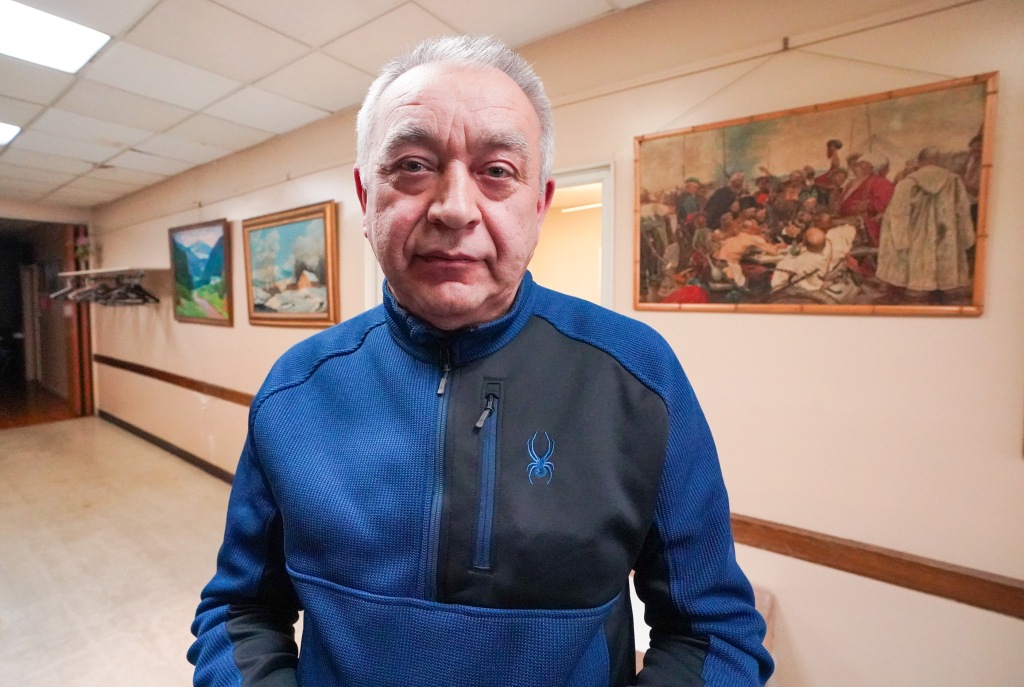
In September, the United Nations released a survey of refugees in 43 countries and found that 81% of Ukrainian refugees hope to return to their homeland. Just 4% said they did not.
“There are people who came from places where their houses are destroyed — places where they have no jobs anymore,” said Oleksandr Matsuka, 66, a retired UN diplomat who is now president of the New York branch of the Self-Reliance Association of Ukrainian Americans.
“Even when the conflict ends, will they come back? They have to live somewhere and work somewhere and send kids to schools,” Matsuka said.
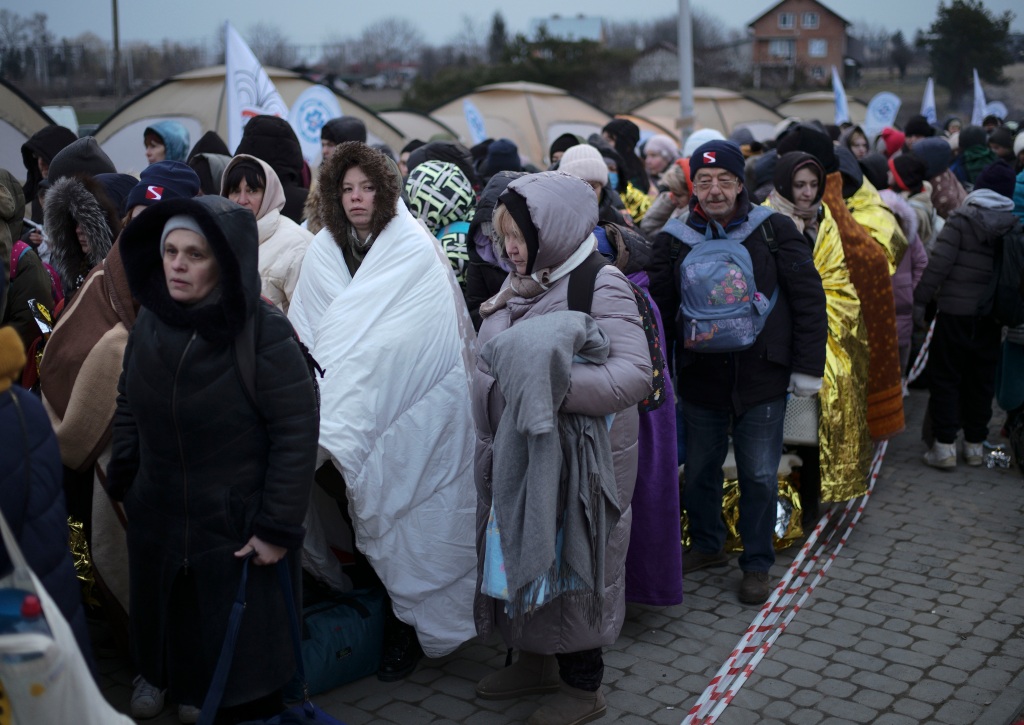
“If you have no schools or hospitals … you can’t come back without your children.”
Svitlana Prokopenko, 57, arrived in Jersey City two weeks ago to live with her son, Oleksii, 34. Ivan, her husband of 35 years, stayed in their home of Borodyanka, just northwest of Kyiv, to fight.
“He said, ‘I can’t leave my home because it’s my home, and I’m ready to fight for my home and my land,” she told The Post through her son.
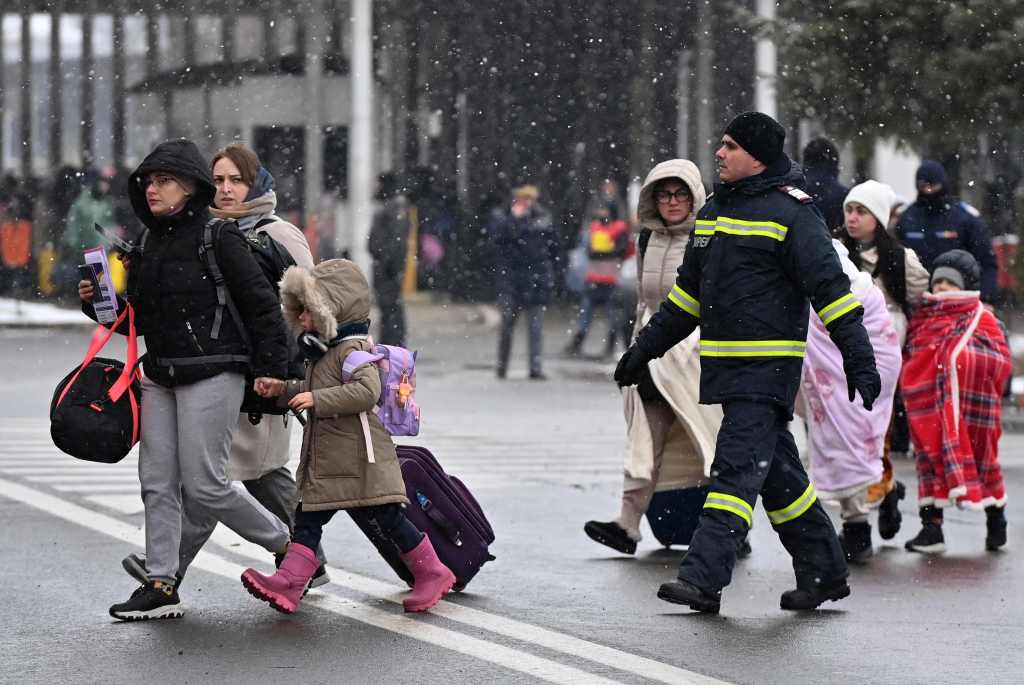
“He’s now in a dangerous country. I don’t know if in the future we will meet each other again.”
Before the war, Svitlana was a hospital worker and Ivan worked in construction.
Life immediately changed when Russian soldiers marched into their country, but on March 7, their lives were completely upended when a Russian missile ravaged their home.
The couple relocated to an old, windowless house nearby — until the soldiers moved in. The invaders shot bullets through her family portraits, lit an American flag on fire inside and murdered the family’s dog, a mixed breed named John, Oleksii said.
“They visited each house… and tried to kill everything,” Oleksii told The Post Thursday.
“Putin doesn’t want to just fight on the frontlines, he wants to kill the Ukrainian nation. Especially our spirit.”
Oleksii, a former financial analyst who co-founded Help Ukraine Center USA, a humanitarian aid organization, said his cousin and brother-in-law have already died in the war.
Now, he worries about the trauma his mother has endured.
“She needs help with stress and depression. I want her to come back to a normal life,” he told The Post.
One year after Putin launched his full-scale invasion of Ukraine, the UN said the violence has left at least 8,006 civilians dead and 13,287 injured by its count — although the organization warned the tally is “only the tip of the iceberg” and the real human toll would be “unbearable.”
At least 487 children have been killed and 954 injured, the UN said.
Norwegian Chief of Defense Eirik Kristoffersen estimated on Danish TV2 last month that 30,000 civilians had died in the unnecessary bloodshed.
The army general added that Russia had suffered an estimated 180,000 military casualties while Ukraine had 100,000 killed or wounded in action.
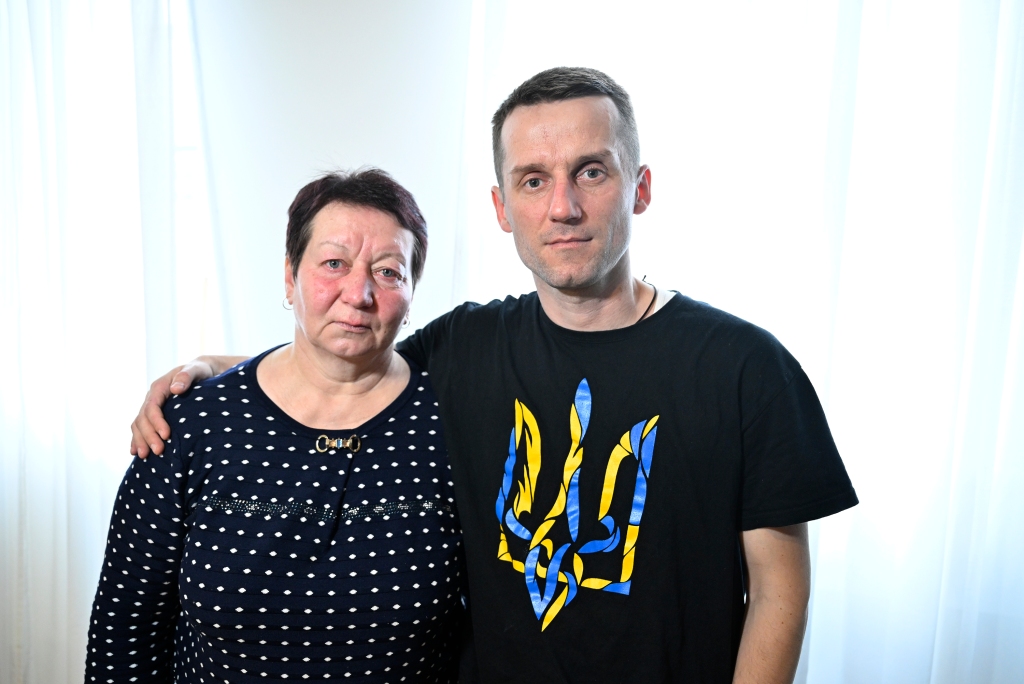
Vitalii Desiatnychenko, a 31-year-old operations manager at Veselka, said his mom, Liudmyla, left Kyiv for the Big Apple in November 2022.
At the time, she only planned to stay with her son for a few months. Now, he has a hard time imagining her going back.
“I feel much more comfortable having her around me,” Desiatnychenko told The Post Tuesday. “I feel comfortable that she has the basics: heat, hot water, electricity, peace, and decent weather.”
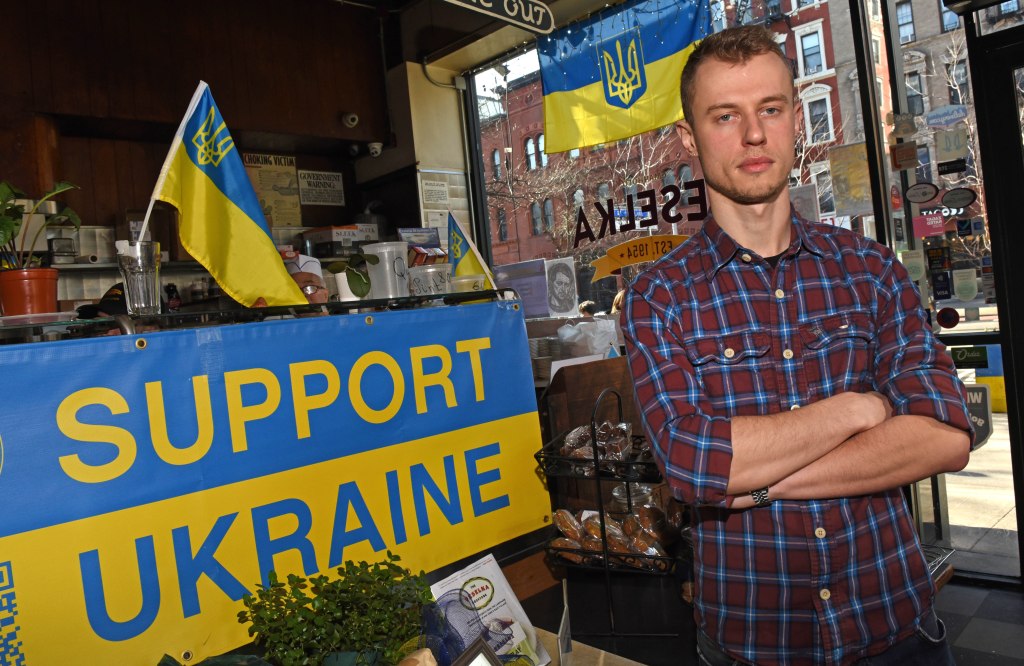
But for Liudmyla, who left her husband in the war-torn capital, the choice isn’t so easy.
“This is not what she wanted to do. She had a decent life in Ukraine with all the comfort she needed. But she feels odd here,” Desiatnychenko said.
“One day she has a good day, another day she’s homesick. She wants to see her mom, and she wants to see my dad. She just wants to go back to her comfort zone.“
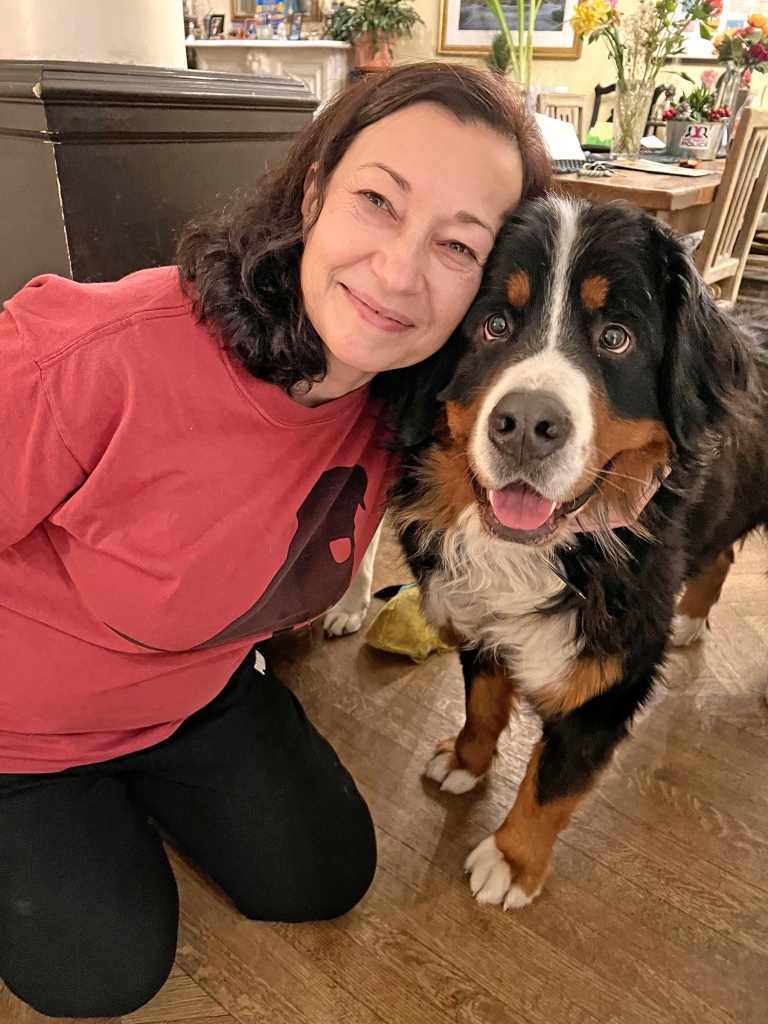
About 271,000 Ukrainians have fled to the United States since the conflict began, according to the Department of Homeland Security.
Of those, 115,000 have entered through the federal Uniting for Ukraine program, which streamlines the entry process and lets the displaced stay for up to two years. Another 156,000 have arrived through other means, the agency said.
But questions remain, even with the program’s apparent success. For example, what happens if a Ukrainian citizen wants to stay beyond the two years President Biden’s program allows?
They could seek asylum, said Dmyterko, of RefugeeOne. But beyond that, it’s not entirely clear.
“It’s kind of a gray zone,” he told The Post.
Meanwhile, experts say Putin’s long-awaited spring offensive has already begun.
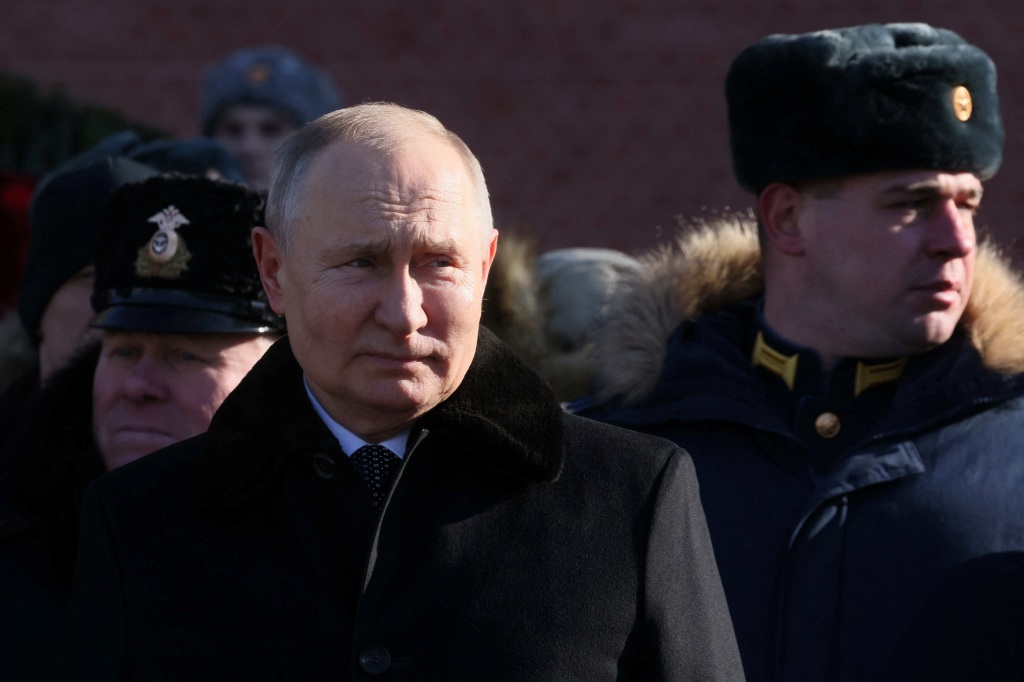
On Tuesday, the heartless Russian leader in an unhinged speech vowed to carry on with his so-called “special military operation,” chided the West, and suspended the country’s participation in a nuclear treaty that limits its nuclear stockpile
Matsuka, the former diplomat, sneered at the dictator’s “dull, repetitive” words.
“It was very, very pathetic,” Matsuka told The Post.
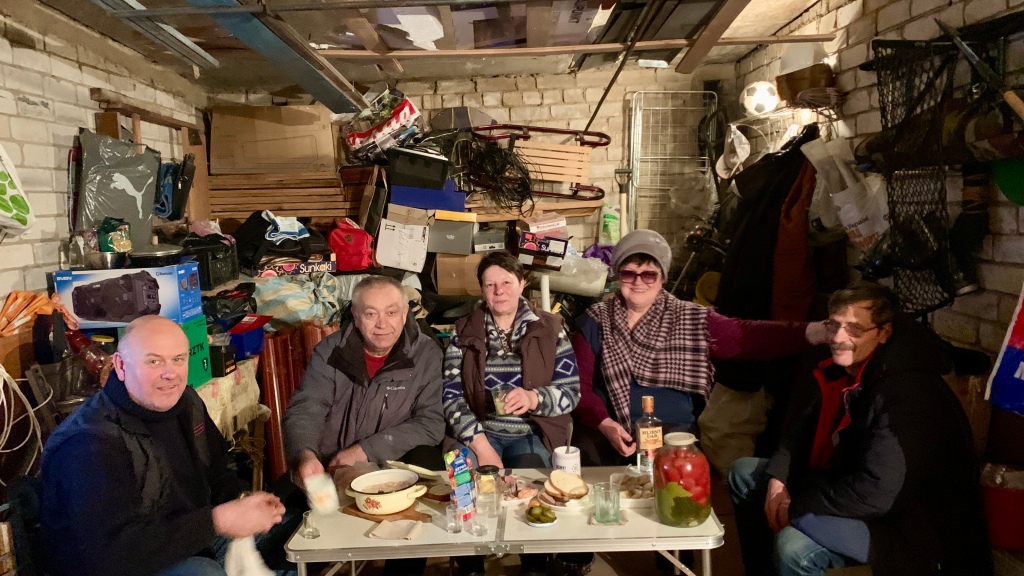
“‘Oh yes, we had no choice — we had to fight because there were Nazis and the collective West invaded us and we had to defend ourselves!’ It’s all lies and everybody knows it’s all lies. He probably believes his own lies by now.”
Randall Stone, a political science professor at the University of Rochester and head of the Skalny Center for Polish and Central European Studies, told The Post Thursday that the rambling rant proves Putin is scared and desperate.
“He’s in the situation of an insecure autocrat who’s afraid to make peace without victory,” he said. “It’s very dangerous for autocrats to lose wars, because they tend to lose power in coups or be assassinated.”
Still, Stone said he expects the war “may go on for a number of years” because of the Russian leader’s defiance.
But for the Ukrainians who have already endured years of unimaginable horror, no price is too high.
“Victory will come,” Svitlana Prokopenko said. “Only victory.”
Read the full article Here


